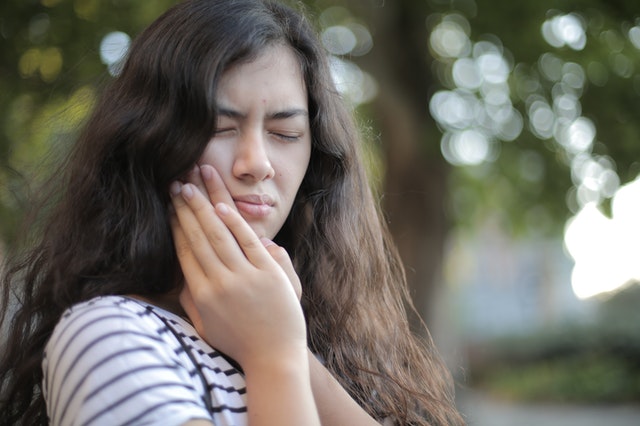Are you starting to notice that you often have a dry mouth at night?
While momentary dryness in your mouth is common, it is something you should not put off lightly when it becomes frequent. If you continuously suffer from dry mouth every night, it can be a side effect of a bigger health issue.
Drinking more water is the easiest way to relieve dry mouth. However, if the dryness persists, it is better to err on the side of caution and identify the reason behind it.
In this post, discover what causes your nightly dry mouth and why it is a big deal for your oral and overall health.
What is dry mouth?
Dry mouth or xerostomia is a condition when the salivary glands stop producing saliva due to several factors. Naturally, our nervous system triggers saliva production whenever we eat. Since we do not eat at night, our digestive system prompts the salivary glands to slow down. However, it is a different story when you experience excessive dryness in your mouth every night.
Dry mouth symptoms include:
- Sticky feeling in your mouth
- A thicker consistency of saliva
- Halitosis or bad breath
- Difficulty in speaking and swallowing
- Sore throat
- Dry tongue
- Changes in your sense of taste
- Difficulty in wearing dentures
Is dry mouth at night serious?
Continuous dry mouth at night is a serious issue since it can result in various dental conditions and chronic diseases. Though sometimes dry mouth comes from leaving your mouth open when you are sleeping, there are deeper reasons behind it that put your oral and overall health at risk.
Your saliva plays an essential role by serving as a protective barrier to your mouth. It contains antimicrobial properties that coat your teeth, gums, and tongue against disease-causing bacteria. Without enough saliva, your mouth becomes an open door for a lot of diseases.
Causes of dry mouth at night
1. Dehydration
By far, one of the common reasons why you experience dry mouth is inconsistent water intake. Our body uses water to:
- Maintain a normal temperature
- Protect the spine
- Preserve sensitive tissues
- Lubricate and cushion joints
- Clean up body wastes through urine, sweat, and bowel
Living in hot climates or an active lifestyle will require more water intake to fight dehydration. Also, consuming diuretic drinks can contribute to significant water loss, such as coffee and alcohol.
2. Side effects of mental condition, antidepressants, and other treatments and medications
Saliva production is not only connected to our digestive system but also our nervous system. Anxiety is a well-known condition that contributes to dry mouth. Antidepressants and opioid abuse also increased the risk of patients developing dry mouth as a side effect.
Patients who undergo chemotherapy may also experience dry mouth two weeks after their treatment. Radiation treatments for patients with cancers in the head or neck can damage the salivary glands and affect saliva production.
3. Symptoms of diseases and infections
The medical conditions below are another reason why you should not underestimate your nightly dry mouth. It can be a symptom of:
- Diabetes
- HIV/AIDS
- Alzheimer’s disease
- Yeast infection or thrush
- Stroke
4. Nerve problems
Your salivary glands can also be affected by head surgery, trauma, or injury. When the facial nerve gets damaged, it may result in salivary gland dysfunction or decreased saliva production.

Effects of nightly dry mouth on your oral health
Aside from the discomfort, dry mouth is a threat to your healthy teeth and gums. You become more susceptible to the following conditions:
1. Tooth decay
Lack of saliva speeds up the progression of plaque buildup on the tooth enamel. As soon as the enamel loses minerals, the bacteria will work their way towards the tooth pulp. Therefore, causing not only throbbing toothaches but also tooth infections.
2. Bad breath
Halitosis is the unpleasant odor from the mouth due to the concentration of bacteria in our mouths. Since dry mouth creates a perfect environment for bacterial growth, you can expect that bad morning breath will be another problem you need to address.
3. Gum infection
Since dry mouth speeds up the formation of plaque, you can also be prone to gum infection. With the combination of poor oral hygiene and dry mouth, the concentration of bacteria in plaque can seep through your gums and spread throughout your mouth.
4. Discomfort in wearing dental appliances
Saliva ensures proper lubrication in our mouth. Dry mouth with dentures may feel uncomfortable since the friction between the dry gums and dentures can be irritating and painful.
Tips in preventing dry mouth
Prevent your dry mouth from getting worse and save yourself from its damaging effects by following these tips:
- Hydrate often
- Avoid alcohol and smoking
- Choose meals rich in broth or soups
- Chew sugar-free gum or sour candy to stimulate saliva production
- Double your brushing and flossing efforts to prevent plaque buildup
- Talk to your doctor or dentist about your nightly dry mouth
Discover what causes your dry mouth with LandMark Dentistry
With a continuous dry mouth at night, it is only a matter of time before your oral health suffers from its consequences. Preserve your natural teeth and protect your mouth from the damaging effects of dry mouth with our LandMark dental team.
LandMark Dentistry provides comprehensive preventive treatments in Matthews, Charlotte, Mallard Creek, and Wesley Chapel. These include:
Our body knows how to send us some signals when there is something wrong. Take the hint from your frequent dry mouth at night and schedule an appointment now. Address the small issues today, and your future self will thank you later.

